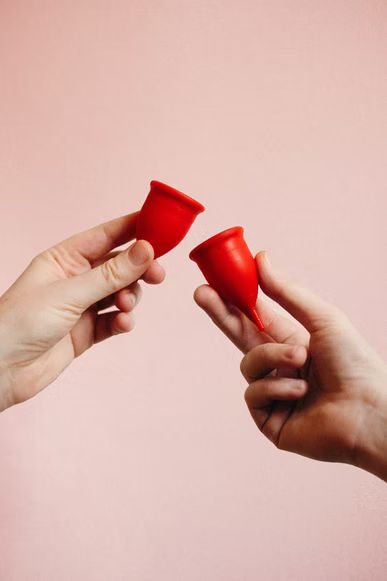Menstrual leave has existed in various forms around the globe for at least a century, with the Soviet Union instituting a national policy in 1922, Japan in 1947, and Indonesia in 1948. However, it is still uncommon in many large global economies, including India. A movement in support of it is rising, as more and more companies throughout the world begin to implement the benefit.
Also read: International Labour Day 2022: History and significance
Women, transgender, and non-binary workers who menstruate stand to benefit if this is broadly implemented: they will have direct channels to rest when they need it most, will be happier and more productive at work as a result, and will find it easier to continue in the labour market. However, because menstrual leave has entered the global zeitgeist, some critics have claimed that the perk is unfair or that it may further stigmatise people who have periods. Is menstrual leave beneficial or detrimental to workers who are unable to take the leave they believe they require?
Are period leaves fair?
With many organisations implementing period leaves, discussions have erupted and subsided, but the question ‘is it fair?’ remains unanswered. Menstruation has been a taboo subject in India since time immemorial. With the passage of time, the veil of secrecy around the matter is progressively dissolving. Nonetheless, a substantial portion of our population lacks access to appropriate menstrual hygiene because it is still considered taboo by many.
Also read: How are women faring in the Indian labour force?
“I’ve worked in a space earlier, where I had a colleague who used to be unable to move during her periods. She used to go to a room in the office and curl up in pain. Despite that, period leaves were not implemented and if she took her leave, it was calculated as unpaid leave. While clubbing it under sick leave is also not okay because it isn’t an illness, it’s a natural occurrence, it is high time for organisations to understand that the pain is unbearable and resting only prepares us better for another day at work,” Priyadarshini Chitrangada, brand strategist at an advertising firm shared their experience.
Working under a similar corporate structure, Evelyn Pope, a trainer at a multinational firm revealed, “Since the company does not have any sanctioned period leaves, I take sick leave whenever I need it for my menstrual cramps.”
Also read: Miss Universe Harnaaz Sandhu discusses period poverty in the Philippines
According to the findings of the International Journal of Environment Research and Public Health’s Menstrual Hygiene Preparedness Among Schools in India (2020), less than half of the girls were aware of menstruation before menarche. According to a study conducted by UNICEF and the National Institute of Urban Affairs (2020), adolescent menstruators living in impoverished urban areas lack access to basic menstrual hygiene services. Because they cannot afford them, one in every two females is denied sanitary napkins and tampons throughout their menstrual cycle. The numbers have been long, yet the fight goes on.
“Period leaves are a progressive and a much-needed move. Period cramps are real and it’s high time society is more empathetic to issues that affect people who menstruate,” Krithika, an associate at a credits rating agency said.
Also read: Common period myths busted: Cramps, food habits and workouts
Period leaves have long been a source of contention in India. The question of whether such leaves are fair is an age-old one. Many people believe that period leaves are discriminatory in the workplace. Period leaves, it is commonly asserted, violate the fundamental right to equality (Article 15) (1). Article 15(3) of the Constitution, on the other hand, allows the state the authority to establish specific provisions for women and children.
According to The Indian Express, a 2017 Maya (women’s fertility and health tracker) survey showed over 50% of women in India have irregular menstrual periods, and nearly 68% suffer severe cramps, exhaustion, or bloating difficulties. There have been heated debates on how these leaves should be used. Deepinder Goyal, the founder and CEO of Zomato, also stated that period leaves should not be exploited in any way, according to News Minute.
Also read: COVID-induced stress affects women’s reproductive health, study shows
Why do people need period leaves?
Menstrual symptoms differ from individual to person. While some people breeze through their monthly cycle, others – particularly those suffering from illnesses such as endometriosis or premenstrual dysphoric disorder (PMDD) – face a slew of unpleasant side effects. Cramps, backaches, and migraines are among the most common causes of discomfort among menstruating women of reproductive age, according to studies.
“Honestly, if I get a leave on my second day of period, my body will get the rest it needs and be better prepared to work the next day onwards. If I exhaust my body on a day when its bleeding itself dry, I remain exhausted and irritated for the next few days as well. Therefore, in a company that offers period leaves, I would feel more comfortable to work,” Priyadarshini said.
Also read: Menstrual products must on school and college campuses, California law says
Madhurima Sanyal, a research executive at a non-profit firm concurred with them saying, “I have always had terrible period cramps and I find it difficult to move around on the first two days. I’ve taken a sick leave from work a couple of times after deliberating on it for a whole day so I think menstrual leaves are necessary for working women and that we do not need to prove and justify just how uncomfortable and painful those days are to anyone.”
Most menstruators try to push through and go to work. According to Gabrielle Golding, a senior lecturer at South Australia’s Adelaide Law School, this is often because they are hesitant to disclose menstrual-related symptoms to their superiors for fear of being viewed as weak or incapable of executing their jobs.
Also read: COVID vaccines and periods: All your questions answered
“My period was 2 weeks late once during one of my internships. I was in a lot of pain and nearly passed out at my desk. Luckily, my boss was really kind to me and even offered to arrange for a ride home. It would have been impossible for me to contribute in any significant way at work while I was in pain anyway,” Shrimayee Thakur, a Delhi-based freelance writer said.
“Offering a period leave would be the humane thing to do, so it would build trust and make me feel like the company cares about my well-being, which in turn would encourage me to put in my best effort at work,” Thakur added.
According to the findings of a 2021 survey conducted by the Victorian Women’s Trust and Circle In, an HR software provider based in Melbourne, Australia, 70% of the 700 participants did not feel comfortable discussing with their managers how they could accommodate their menopausal symptoms (which frequently include heavy periods); 83 percent said their work was negatively impacted as a result. This is “exacerbated in the absence of a menstrual leave scheme,” Golding writes, with disastrous consequences, often driving menstruators to ignore their physical and mental health.
Also read: Periods or pregnancy, ovulation is the game. Here’s how to track it
How does it affect employers?
Working through the pain is also bad news for employers, as it accounts for an average of nine days of lost productivity per worker per year, according to a 2019 Radboud University poll of 32,748 women in the Netherlands. According to the authors, this makes menstruation a workplace concern.
Menstrual leave policies, on the other hand, are often seen as expensive – notably by critics of these schemes, who frequently cite employer costs incurred while paying employees on leave as a justification to reject them. However, Marian Baird, a professor of gender and employment relations at the University of Sydney’s Business School, believes that corporations will be rewarded handsomely for implementing a policy. “If you do provide the right [services], women’s productivity increases, their commitment and loyalty increases, and there are benefits to the firm.”
Also read: International Menstrual Hygiene Day: History, significance and theme
Period leaves – a logistical nightmare, almost as bad as cramps
“I was very privileged to have my first employment opportunity with an organisation that works on menstrual advocacy. I could claim flexible work hours and period leaves while I was on unable to work. However, it is important to understand that everyone experiences menstrual cramps and pain at different points in their menstrual cycle and have varying intensity. So period leaves only make sense if it is accepting and accommodating of this reality,” Subhiksha Manoj, a student of Development Studies at SOAS, University of London stated.
Also read: Menstrual Hygiene Day: Some dos and don’ts for a healthy, happy period
Despite the growing support for menstruation leave, these rules remain confusing and have their detractors. Some opponents are concerned that modern incarnations of period leave, which are intended to eradicate menstrual taboos and improve employee experience, may impede gender equality in the workplace, because employees who menstruate will be treated differently than those who do not.
“Everyone has a different pattern of menstruation. To me, it’s not that big a deal. I prefer to work and stay mentally occupied. Those who have really tough, challenging cycles should get offs.
But it’s tough to decide and fix such leaves,” Sudeshna Nath, a school counselor of Delhi Public School, Ghaziabad, Vasundhara hints at the complications.
The essentialisation of menstruators’ bodies, according to Golding, “could fuel harmful stereotypes that [they] are less worthy or reliable employees,” or incapable of functioning when menstruating – which is far from universal. Melissa Dobman, an organisational psychologist and the author of Yes, You Can Talk About Mental Health at Work, is also concerned that menstruators will be labelled as “emotional” if they discuss their menstrual symptoms at work, despite the fact that “vulnerability is actually a good thing for a leader” to demonstrate, states a BBC report.
Also read: Menstrual leaves, tax-free tampons: 4 countries that prioritised women’s health
Furthermore, even if menstrual-leave rules are adopted, employees must believe they are in a culturally acceptable enough atmosphere to take advantage of them, according to Golding, noting past situations around the world where acceptance has been low, such as in Japan. Even those who are insured may resist taking leave owing to “shame and stigma,” she says, or the fear that it may jeopardise their careers – that is unless they believe their employers actually support them.
And, while these rules may benefit the employees who want to use them, corporate privileges like paid menstruation leave or the opportunity to work from home are not available to all employees. Service workers who work long shifts and are on their feet all day are forced to pick between a day off and a paycheck. Golding argues that this inequity must be addressed on a systemic level, “A right to paid menstrual leave, which is mandated in a broadly applicable statute, would mean that women from a vast array of socio-economic backgrounds would be afforded the opportunity to take leave.”







